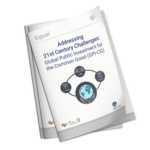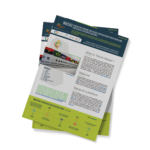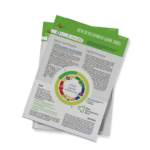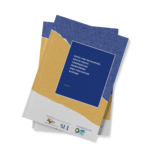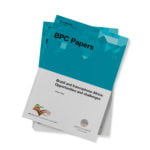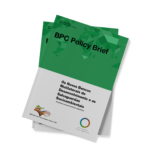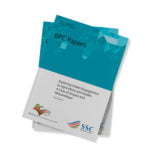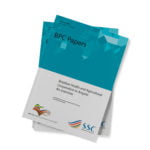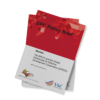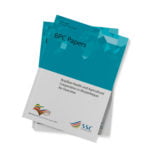
Paulo Esteves
MAPI Coordinator / Socio-Environmental Platform Coordinator / LACID Coordinator / GSUM Researcher
He holds a degree in History from the Federal University of Minas Gerais (1993), a master’s degree (1995) and a PhD (2003) in Political Science from IUPERJ. In 2008 he held post PhD studies at the University of Copenhagen. He is a professor at the Institute of International Relations of the Pontifical Catholic University of Rio de Janeiro. In 2004 he organized the book “International Institutions: Security, Trade and Integration”; and, in 2010, the book “International Relations: theoretical and meta-theoretical debates”, published by publishing company PUC-Minas. He published in 2010 the book “The Convergence between Humanitarian Practices and International Security” by the publisher Del Rey / FUNAG. He has experience as a consultant for the United Nations Development Programs, from the Government of the State of Minas Gerais, CNPq and CAPES. He is a founding member of the Brazilian Association of International Relations of which he was director between 2005 and 2009. He is an elected member of the executive committee “International Political Sociology,” section of the International Studies Association. At the moment, he conducts research on the convergence of the fields of International Security, Humanitarianism and Development and on the participation of Brazil, medium powers, and peripheral countries in the new international security architecture.
Programas
Projetos
Development Banks and Safeguards
The BRICS Policy Center in partnership with the Mott Foundation launched the project "Strengthening the Safeguards of New Development Banks" (“Fortalecendo as Salvaguardas dos Novos Bancos de Desenvolvimento”). The project...
BRICS and Industry 4.0: skills gaps and skills development
Dialogues on International Development Cooperation
South-South Cooperation Dialogues is an annual event organized by the BPC team. The "Dialogues" have two goals: 1) to foster policy dialogues on issues related to South-South and Triangular Cooperation ...
Publicações
Adenauer Notebooks – 2nd Edition: G20 in Brazil
The notebook "Adenauer Notebooks - Special Edition 2: G20 in Brazil" brings together expert analyses on crucial topics on the G20 agenda under the Brazilian presidency, such as the fight...
Addressing 21st Century Challenges: Global Public Investment for the Common...
This paper contributes to current policy-makers’ debates about Global Public Investment (GPI). By emphasising its dimensions of ‘globalness’ and ‘publicness’, the paper argues that GPI could play a major role...
Leveraging triangular partnerships to respond to COVID-19 and build back...
The present brief has two main objectives: to analyse the impacts of the pandemic on existing triangular co-operation programmes; and to explore how partners can leverage triangular co-operation to catalyse...
Russia: Skills Gap and Skills Development
The document summarizes the Industry 4.0 main impacts upon the workforce in Russia, emphasizing future jobs, skills gaps and skills development strategies.
India: Skills Gap and Skills Development
The document summarizes the Industry 4.0 main impacts upon the workforce in India, emphasizing future jobs, skills gaps and skills development strategies.
Forum for Economic and Trade Cooperation between China and Portuguese-Speaking...
This fact sheet outlines an overview about the Forum for Economic and Trade Co-operation between China and Portuguese-Speaking Countries (Forum Macao).
New Development Bank (NDB)
The bank aims at mobilizing investments towards infrastructure projects and sustainable development in the BRICS and other developing countries.
Asian Infrastructure Investment Bank (AIIB)
The China-led initiative aims to foster sustainable development and promote regional cooperation and partnership in addressing common development challenges in Asian countries.
Paths for developing South-South Cooperation monitoring and evaluation systems
Monitoring and evaluation practices are in constant transformation and respond to different principles and interests. Evaluating means assigning value. It implies measuring, describing and interpreting. In relation to development cooperation,...
Brazil and francophone Africa: Opportunities and challenges
The diplomatic efforts made by Brazil towards Africa in the last decade focused mainly on Portuguese-speaking countries, but represent the importance the continent is given within the foreign policy of...
The New Multilateral Development Banks and Socio-environmental Safeguards
By analyzing three sets of socio-environmental policies and safeguards recently disclosed by the two new MDBs noted above and by the World Bank, which just presented a revision of its...
The New Multilateral Development Banks and Socio-environmental Safeguards
The creation of new multilateral development banks (MDBs), such as the New Development Bank, created by members of the BRICS countries in 2014, and the Asian Infrastructure Investment Bank, created...
Exploring Indian Engagement in Agriculture and Health: A Case of...
This publication brings reflexions on practices of the cooperation sectors of agriculture and health between India and Mozambique and Angola.
Brazilian health and agricultural cooperation in Angola: An overview
The objective of this research report is to synthesize key findings, contextual information and analysis required for understanding Brazil’s engagement in Angola, as well as basic information on projects being...
The BRICS and the Global Partnership for Effective Development Cooperation...
Policy Brief "The BRICS and the Global Partnership for Effective Development Cooperation (GPEDC)".
Brazilian Health and Agricultural Cooperation in Mozambique: An Overview
Working Paper “Brazilian Health and Agricultural Cooperation in Mozambique: An Overview” by Adriana Erthal Abdenur, João Moura Estevão Marquês da Fonseca, Geovana Zoccal Gomes and Paulo Esteves. March, 2014.





